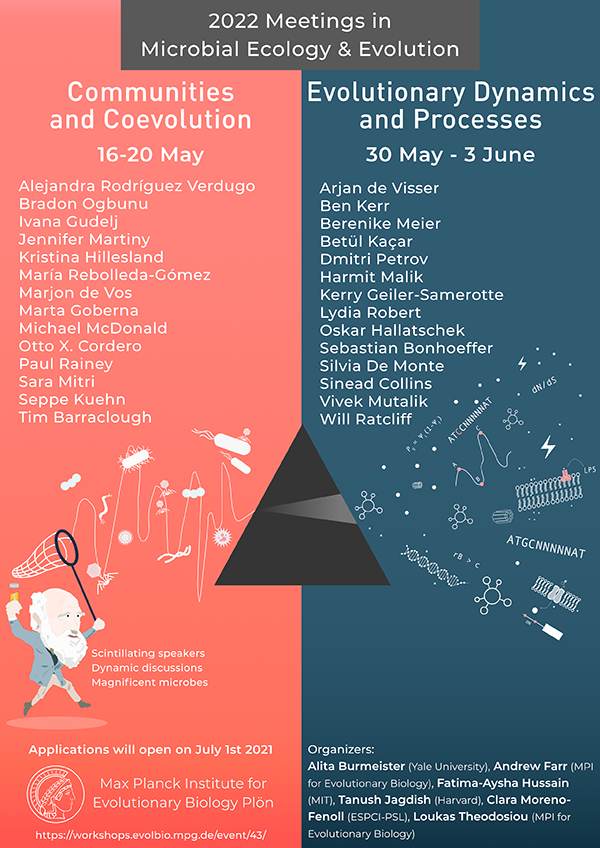Speaker
Description
Colonization of a pristine environment by bacterial communities is a crucial step for the co-evolutionnary dynamics followed by bacteria, in the wild as well as in laboratories. A key phase for the fixation of a strain in a new environment is the primary phase of growth: the lag phase- where cells adapt to their new conditions. For a population composed of several settlers, an essential feature is the possible regulation of the lag phase at the level of the collective. Thereby a fundamental inquiry is : how does the population lag phase depends on the number of settlers, so call the inoculum size. Millifluidic technology is a mighty technology allowing the monitoring of hundreds of bacterial populations grown at the same time in liquid droplet compartments. Using the statistical power of the millifluidic we investigated accurately the lag phase of hundreds of simple bacterial communities starting with defined inoculum sizes. We unravel that bacterial population do regulate their lag phase with a strong interaction between the settling cells. Moreover we demonstrate that the duration of the lag phase is consistent with the presence of a leader cell that triggers the growth of the entire population of settlers. Lastly, we provide the formula that predict the lag phase of a population as a function of its inoculum size.

